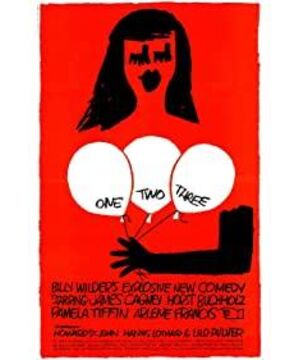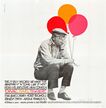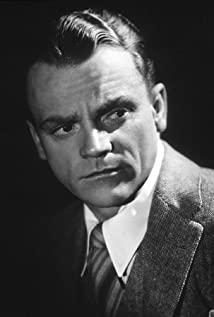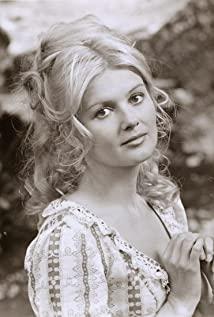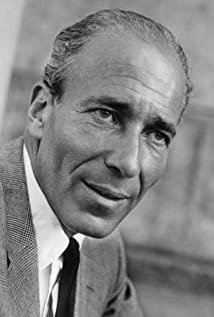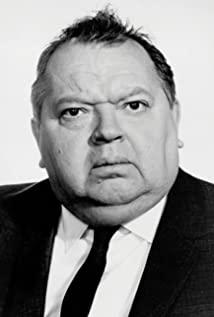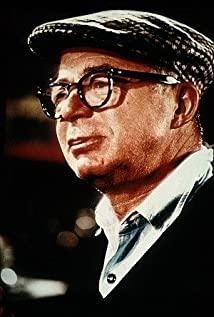Don't be fooled by Xiangyan's translated name. In fact, this is a political satire comedy. The director is the famous Billy Wilder. The background is set in Berlin during the Cold War. This is a magical city, with one city, two systems, all in peace. At that time, the Berlin Wall had not yet been established, and the people of East Germany and West Germany could visit each other through the Brandenburg Gate, just like stopping by neighbors in the neighborhood. Actor McNamara, general manager of the West German branch of The Coca-Cola Company. For a long time, he has worked hard for the company silently, his performance has set new highs, and he has been appreciated by the leaders. However, this successful person encountered the greatest crisis of his career: the boss's daughter Scarlett came to Berlin, and he was entrusted to become her guardian. The little girl is only seventeen years old, but she has an extremely unrestrained personality. She has been married four times; her ex-boyfriend is a basketball player, and her ex-boyfriend is a rock star; she can hook up several crew members on the flight. Her parents were so overwhelmed by her that she had to arrange her to go to Europe to relax, so as to be invisible and indifferent. This hot potato fell into McNamara's hands, making him look like a big enemy, guarding him tremblingly, lest there be trouble and betray the trust of the boss. Unexpectedly, he couldn't be defended, but in the end he was put on by Scarlett. She acted as a lady honestly during the day, but ran out to meet her lover at night. When McNamara found out that something was wrong, she had married a poor boy from East Germany.
The poor boy was called Otto, a passionate young man who grew up under the red flag. In his eyes, all capitalists (including his father-in-law) are vampires and parasites, the evil fruits of a decadent life, and they will surely be swept into the garbage dump of history. The two systems, two different outlooks on life and values have violently collided. After Otto appeared, the film ran all the way in the direction of political satirical comedy. East Germany, West Germany, the Soviet Union, the United States, capitalists, silly white sweets, second disease, spies, and Nazis have all become the targets of the director’s ridicule. Of course, more firepower still falls on the Soviet side led by Khrushchev. camp. For example: "Why don't we defect to West Germany?" "Are you crazy, my family is in Moscow, they will be executed in a row if I ran away, my wife, mother-in-law, brother-in-law, sister-in-law... etc. Wait, let’s go.” Another example: “Maybe we chose the wrong president.” “This won’t happen in Russia.” “Will they choose the wrong one?” “They can’t choose at all.” Specific to Otto. On the body, it is: "Honey, they assigned me a great apartment, we can have breakfast in bed." "Awesome!" "You can also have lunch and dinner in bed." "Why?" They did not assign tables, chairs or benches." "The child is sent to the collective kindergarten at the age of six months, and can be visited once every other week. In addition, we can also see him in the parade." "Is it less frequent?" "It doesn't matter. They parade almost every day." Such a hairy son-in-law obviously can't satisfy the boss. McNamara was caught by the thunder, so he had to think of ways to beat the mandarin ducks.
As a member of the evil capitalist, his first thought was to use money to solve the problem. The outcome can be imagined. The poor boy rejected his proposal with stubbornness. Therefore, the evil capitalists resorted to the second trick: to frame and frame. Under his design, Otto was regarded as an "American spy" and was imprisoned in an East German prison. When he was done, he found that Scarlett was pregnant. Seeing that the fatherless child was about to be born, the two evils were the lesser of the two evils, and McNamara had to save Otto again. After busying for a long time and returning to the original point, the boss is coming. At a critical juncture, McNamara showed a strong desire to survive. He came up with a bold plan: packaging and listing, and transforming the stupid stupid boy into the mainstream Aesthetic rich and handsome. Of course Otto was extremely uncooperative, but his status as an "American spy" left him nowhere, and in the end he could only reluctantly play a German nobleman. From coats to underwear, from leather shoes to ties, from birth to work, and from speech and manners to table manners, everyone was mobilized and busy. Everyone thinks in one place, and works in another direction, vowing to transform the good socialist young people into the rich second generation of capitalism. This part of the filming is full of wit and excitement. Gag, laugh and curse, and even ridicule you. The golden sentences are endless, the burdens are one after another, almost no time for the audience to breathe, people laugh all the way from the beginning to the end.
The ending is even more unexpected, and the transformation plan is a great success! It was so successful that it had the opposite effect: the boss was super satisfied with Otto, and the position that McNamara could not forget was given to his son-in-law by the boss. Finally, the director left a foreshadowing: Otto will not change the true nature of the proletariat. The first thing he does after taking office is to launch a strike against the evil and greedy capitalists. The old man’s headache is probably still to come. If a sequel to this subject matter can be made, it must be excellent.
View more about One, Two, Three reviews


